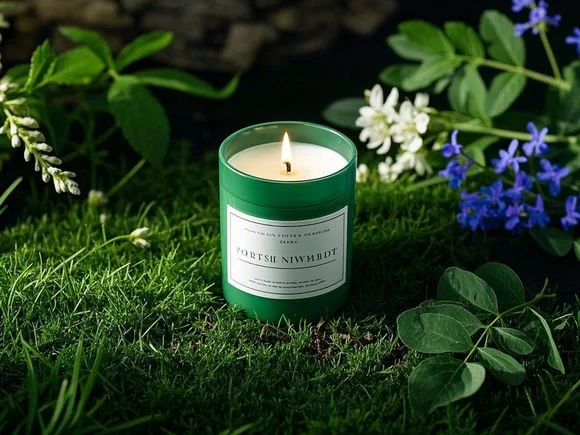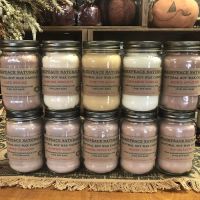Discover the Benefits of Herbal Aromatherapy for Natural Wellness
- What is Herbal Aromatherapy?
- The Benefits of Herbal Aromatherapy
- How Herbal Aromatherapy Works
- Popular Herbal Aromatherapy Oils
- Choosing the Right Herbal Aromatherapy Products
- Real-Life Experiences with Herbal Aromatherapy
- Where to Buy Herbal Aromatherapy Products
What is Herbal Aromatherapy?
Herbal aromatherapy is a holistic healing practice that combines the therapeutic properties of plants and essential oils to support physical, mental, and emotional health. Unlike traditional aromatherapy, which uses a broad spectrum of essential oils, herbal aromatherapy focuses specifically on herbs and their medicinal qualities. These herbs can be used in a variety of forms such as oils, teas, or even in baths to promote wellness.
The Benefits of Herbal Aromatherapy
Herbal aromatherapy offers a wide range of benefits that can enhance your overall well-being. The natural properties of herbs help alleviate stress, improve sleep, boost mood, and even provide relief from common ailments. Here’s how herbal aromatherapy can benefit you:
1. Stress Relief and Relaxation
Herbal aromatherapy oils like lavender, chamomile, and valerian root are known for their calming properties. These herbs help reduce anxiety, promote relaxation, and create a peaceful environment. Incorporating these oils into your daily routine—through diffusers or topical application—can significantly lower stress levels and help you unwind after a busy day.
2. Improved Sleep Quality
Many people struggle with sleep disturbances, and herbal aromatherapy is an effective, natural solution. Herbs like lavender, lemon balm, and passionflower are commonly used to promote deeper, more restful sleep. The soothing scents of these herbs trigger the brain’s relaxation response, helping you achieve a good night’s sleep without the need for artificial sleep aids.
3. Mood Enhancement
Herbal aromatherapy can also help lift your mood and provide emotional support. Uplifting oils like citrus (e.g., orange and lemon) and peppermint are known for their energizing properties. They can help reduce feelings of sadness or irritability and promote a more positive and balanced outlook on life.
4. Physical Health Benefits
Herbal aromatherapy isn’t just for emotional wellness—many herbs offer direct physical health benefits. For example, eucalyptus and peppermint oils can help clear nasal congestion, while ginger and turmeric oils are known for their anti-inflammatory properties. These oils are commonly used for their therapeutic effects on the respiratory and immune systems.
id="how-herbal-aromatherapy-works">How Herbal Aromatherapy Works
Herbal aromatherapy works by utilizing the essential oils extracted from various herbs, which contain bioactive compounds that interact with the body’s systems. These compounds affect the body in different ways, such as triggering the brain’s limbic system, which controls emotions, and affecting the nervous system to promote relaxation or alertness. When inhaled or applied to the skin, these oils have a direct impact on both mind and body.
1. Inhalation
The most common way to use herbal aromatherapy is through inhalation. When you inhale essential oils from a diffuser or vaporizer, the molecules from the herbs enter your nose and stimulate the olfactory system. This, in turn, triggers emotional and physiological responses, depending on the type of herb used. For example, inhaling lavender can promote calmness, while inhaling peppermint can invigorate and refresh you.
2. Topical Application
Topical application of herbal oils allows for their absorption into the bloodstream. When massaged into the skin, oils such as eucalyptus and rosemary can provide pain relief, reduce inflammation, and improve circulation. For topical use, it’s important to dilute essential oils with a carrier oil (like coconut or jojoba oil) to avoid irritation.
3. Herbal Bath Soaks
Another popular method of using herbal aromatherapy is by adding essential oils to your bath. Soaking in a bath infused with oils like chamomile, lavender, or eucalyptus can help relax the muscles, relieve stress, and clear the mind. The warm water combined with herbal aromas creates a soothing experience for both body and mind.
Popular Herbal Aromatherapy Oils
There are many different herbal oils available for aromatherapy, each offering unique benefits. Here are some of the most popular herbal oils and their uses:
1. Lavender
Lavender is one of the most widely used essential oils in herbal aromatherapy. Known for its calming and relaxing effects, lavender is excellent for relieving stress, anxiety, and promoting restful sleep. It’s also great for skin care, as it has anti-inflammatory and healing properties.
2. Peppermint
Peppermint oil is known for its invigorating and refreshing qualities. It’s commonly used to improve focus, boost energy, and alleviate headaches. Peppermint also has digestive benefits and is used to soothe nausea and indigestion.
3. Eucalyptus
Eucalyptus oil is widely used for its respiratory benefits. It’s known to help clear nasal passages and relieve symptoms of colds and sinus congestion. Eucalyptus is also a powerful anti-inflammatory and can be used to ease sore muscles and joints.
4. Chamomile
Chamomile is a gentle, soothing herb that promotes relaxation and aids in sleep. It’s perfect for reducing stress and calming the mind. Chamomile also has mild anti-inflammatory properties, making it ideal for skin care and digestive health.
Choosing the Right Herbal Aromatherapy Products
When choosing herbal aromatherapy products, it’s important to select high-quality essential oils that are pure and free of synthetic additives. Look for reputable brands that offer 100% pure, organic essential oils. Additionally, consider your personal wellness goals. For stress relief, opt for calming oils like lavender and chamomile, while invigorating oils like peppermint and citrus are ideal for boosting energy and focus.
Real-Life Experiences with Herbal Aromatherapy
Many people have experienced significant benefits from using herbal aromatherapy in their daily lives. Here are a few real-life examples:
1. Emma’s Journey to Stress Relief
Emma, a busy working mom, struggled with high levels of stress and anxiety. After incorporating lavender and chamomile essential oils into her evening routine, she noticed a drastic improvement in her ability to relax and sleep. The soothing aroma helped her unwind after a long day, leading to more restful nights and a calmer mind.
2. Mark’s Success with Respiratory Relief
Mark, who often suffered from seasonal allergies and congestion, started using eucalyptus oil in a diffuser. The refreshing scent helped open up his airways and relieve nasal congestion. He now uses it regularly during allergy season and swears by its effectiveness in supporting respiratory health.
Where to Buy Herbal Aromatherapy Products
If you’re ready to experience the benefits of herbal aromatherapy, check out Scent Snob. They offer a curated selection of high-quality herbal aromatherapy products, including essential oils, diffusers, and wellness sets. Whether you're seeking relaxation, improved sleep, or mental clarity, Scent Snob has the perfect herbal aromatherapy products for your needs.




0 comments